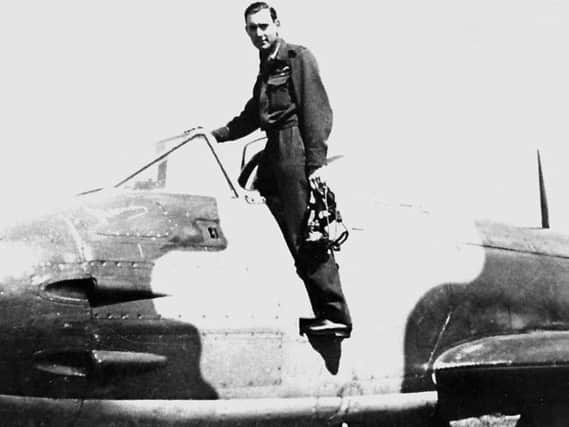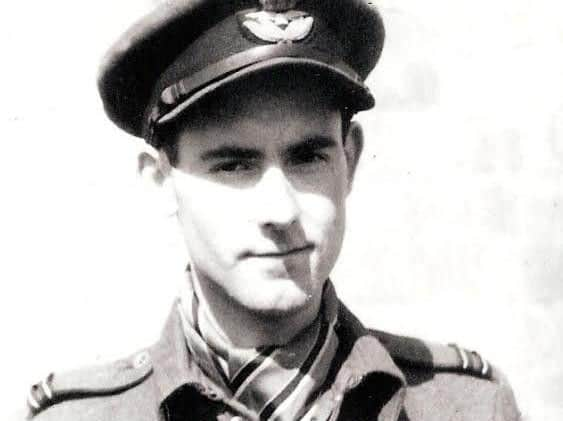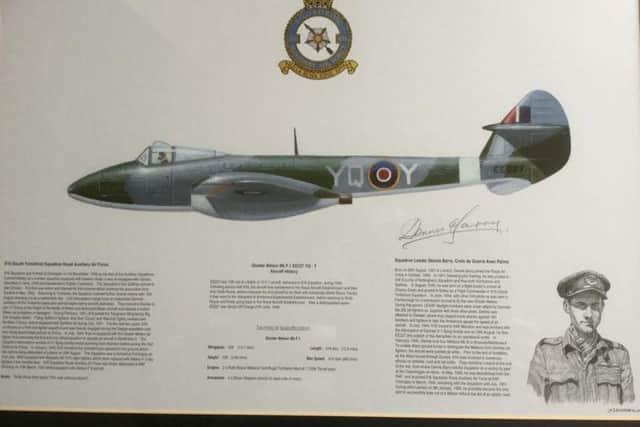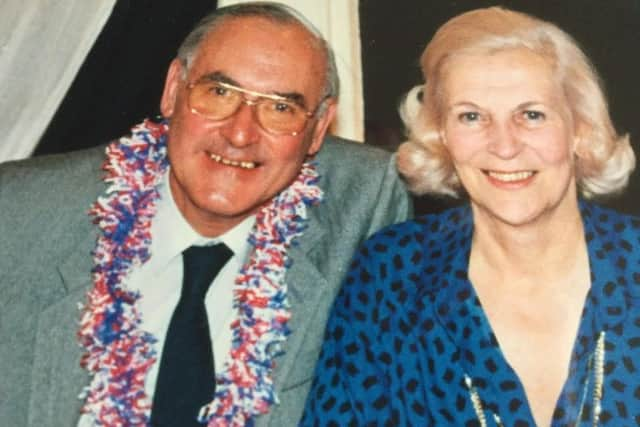Hero pilot who led wartime fight against flying bombs in Britain's first jets dies aged 95


Dennis Barry, who lived in Crookes, was second in command of 616 South Yorkshire Squadron and is believed to have been the last surviving wartime Gloster Meteor pilot.
The Meteors were Britain's first jet fighters and played a key role in protecting these shores by shooting down German V-1 flying bombs, dubbed doodlebugs or buzz bombs due to the ominous drone they emitted.


Advertisement
Hide AdAdvertisement
Hide AdBorn in London on August 26, 1921, Dennis moved to Sheffield as a boy and studied at King Edward VII School before joining the RAF in October 1940, aged 19.
He initially flew Hurricanes and Spitfires, and his skill and daring in the skies propelled him up the ranks to become a squadron leader, the second highest position within the 616 Squadron.
He led offensive patrols over northern France in the build up to D-Day, in June 1944, before training to fly Meteors later that month.
Having taken on the V-1 bombs in the cutting-edge aircraft that year, his squadron then led numerous attacks on airfields, road and rail traffic as the Allied troops swept through Europe.


Advertisement
Hide AdAdvertisement
Hide AdHis wartime exploits earned him the Croix de Guerre with Palme - a French military honour awarded for acts of heroism.
Dennis was demobbed in May 1946, before rejoining the 616 Squadron Royal Auxiliary Air Force at RAF Finningley, now Doncaster Sheffield Airport, two years later.
He spent three years in the RAAF, during which he earned the distinction of being probably the only pilot to bale out of a Meteor without the use of an ejector seat and live to tell the tale.
After both engines failed during a flight from Finningley, he leapt from the cockpit at 1,500 feet and landed in a field, shattering his leg on the frozen ground.


Advertisement
Hide AdAdvertisement
Hide AdHis leg would never be the same again, but the episode earned him entry to the exclusive Caterpillar Club, reserved for those select few pilots who have baled out of stricken planes in parachutes and survived.
Despite his prowess in the cockpit, his first love was for cars, and he quit the air force in 1951 to start his own business, Central Motors, selling luxury automobiles in West Street, in Sheffield city centre.
He would remain in the motor trade for the rest of his working days, later being employed by the Hatfields dealership.
Away from work, he drove rally cars and was a keen squash player, a longstanding member of Hallamshire Golf Club and a freemason.


Advertisement
Hide AdAdvertisement
Hide AdDennis married Brenda in 1947, having met her at a party he attended with a comrade from his squadron.
They had two children together and were blessed with two grandchildren and four great-grandchildren.
They lived in Sefton Road, Fulwood, and then Watt Lane, in Crosspool, before moving to Northfield Nursing Home, in Crookes, in their later years.
Dennis died peacefully at the home on Friday, March 10, just over a year after Brenda passed away in December 2015.
Advertisement
Hide AdAdvertisement
Hide AdTheir son Peter described him as a kind man and loving father, who knew how to enjoy life.
He said Dennis rarely talked about his wartime exploits, but he recalled being given a smashed-up joystick which his dad had kept as a memento after crash-landing a Spitfire.


He also remembers being told of the terrifying moment when a bullet pierced the fuselage of a plane Dennis was piloting and ricocheted around the cockpit.
"Dad was one of the first jet pilots. They were pioneers and I'm very proud of what he did," added Peter.
Advertisement
Hide AdAdvertisement
Hide Ad"It must have been a frightening life as a fighter pilot but also an exciting one, and I think they enjoyed what they were doing."
Dennis' daughter Bridget Johnson described him as a wonderful father and a 'rather dapper, characterful man'.
Air Commodore Graham Pitchfork, who was former commanding officer of RAF Finningley and knew Dennis well, remembers him as a 'delightful' and 'ebullient' man with a lovely sense of humour.
"Dennis was very loyal to the squadron and to his friends, he laughed very easily and was a truly nice bloke who was very modest as were so many of that generation," he added.
Advertisement
Hide AdAdvertisement
Hide Ad* A service will be held at Hutcliffe Wood Crematorium on Saturday, April 1, at 11.15am. His family has asked for donations to be made to the RAF Benevolent Fund, in lieu of flowers.
Advertisement
Hide AdAdvertisement
Hide Ad